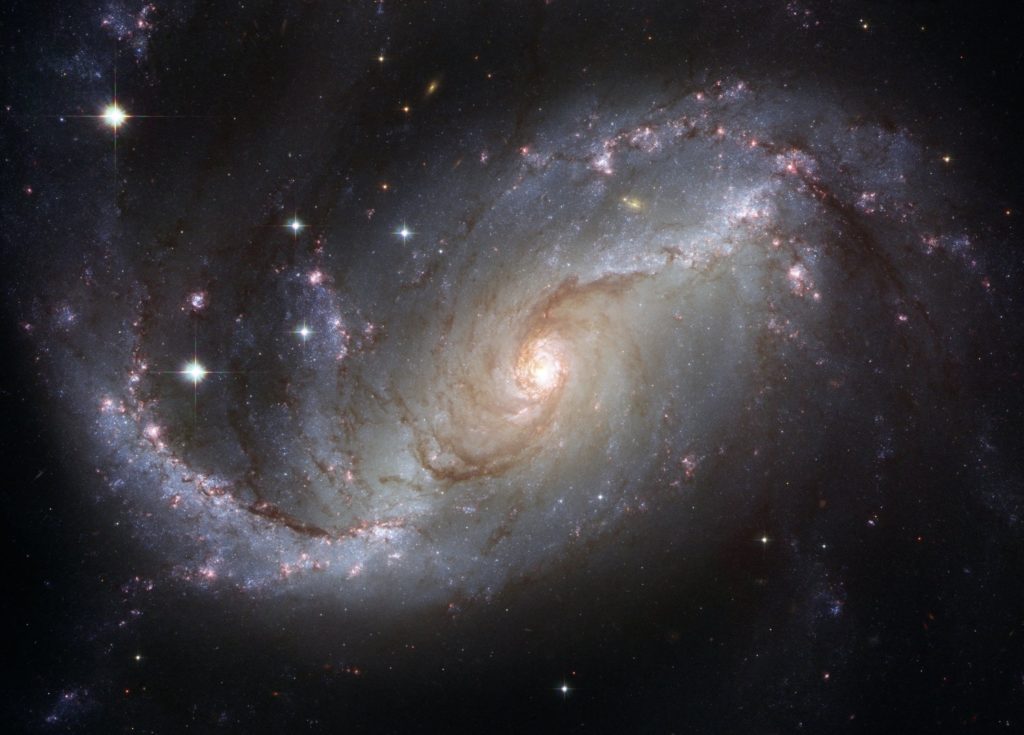The books that got me hooked on science fiction
- Updated: November 4, 2020

Introduction
“Science fiction” is difficult to define precisely, as it covers a wide range of concepts and themes.
Science fiction (sci-fi or SF) is a genre of speculative fiction. It deals with imaginative and futuristic concepts such as advanced science and technology, parallel universes, extra-terrestrial life, Alien Invasion, Alternative History, Colonization, Dystopian, First Contact, Galactic Empire, Genetic Engineering, Military, Post-Apocalyptic, Space Exploration, Space Opera, Time Travel.
It often explores the potential consequences of scientific, social, and technological innovations. “Sci-fi” is a term that says everything and nothing simultaneously.
In the pre-internet and pre e-book days my only source of books was from the bookstores stocking the book and the libraries. Ordering through the bookstore for hard to find books was expensive at the time. Information about books were wholly from book reviews in newspapers and magazines.
There was a limit to my spending during my student days. This continued right up to the earlier days of my career. The budget limitation meant that I had to be selective in my buying. I ended up buying science fiction books at the expense of other genres.
I encountered books by chance in those days, and luckily I came across these awesome titles. These are my suggestions for those of you who are new to science fiction. When you start these books, you will most likely continue with the rest of the of the books in the series. They are all classics and bestsellers and easily stand up today. They are great entertainment and thought-provoking science fiction stories.
For this list I have left out ‘pure’ fantasy. Fantasy include sub-genres such as Arthurian, Dragons & Mythical Creatures, Fairy Tales, Metaphysical, Sword & Sorcery, Witches & Wizards. Notable omissions are The Lord of the Rings trilogy, Sword of Shannara, and many more.
1. Foundation
Books in the series:
The Foundation series is a science fiction book series by Isaac Asimov. The series comprising Foundation, Foundation and Empire, and Second Foundation was a trilogy for 30 years. It won the Hugo Award for “Best All-Time Series” in 1966. Asimov started to add new volumes to the series in 1981. There were two sequels; Foundation’s Edge and Foundation and Earth, and two prequels; Prelude to Foundation and Forward the Foundation.
About the author:
Isaac Asimov was a writer of hard science fiction and was a professor of biochemistry at Boston University. Asimov’s most famous work is undoubtedly the “Foundation” series.
Mind blowing concept:
Psychohistory
Psychohistory is a fictional science in Isaac Asimov’s Foundation universe which combines history, sociology, and mathematical statistics to make general predictions about the future behaviour of exceptionally large groups of people, such as the Galactic Empire.
What it is all about:
I became interested in science fiction after reading the original Foundation trilogy which later a 7-book series. The Foundation series made me realise I was a science fiction fan.
Foundation tells us the story of the mathematician Hari Seldon who devoted his life developing psychohistory, a mathematical sociological theory. This happened in the days of waning Galactic empire, sometime in a distant future far from our present.
Psychohistory uses statistical laws of mass action to predict the future of large populations. Seldon foresees the imminent fall of the Empire, which encompasses the entire Milky Way, and a dark age lasting 30,000 years before a second empire arises. Seldon uses the science of psychohistory to plot their course through a galactic dark age and preserve scientific knowledge. He devises a plan by which “the onrushing mass of events must be deflected just a little” to eventually limit this interregnum to just 1,000 years.
Seldon creates two Foundations; two groups of scientists and engineers settled at opposite ends of the galaxy to preserve science and civilization, and thus become the cornerstones of the new galactic empire.
Foundation has interstellar space travel, nuclear power, and engineering marvels, but the real focus is on the social and political changes occurring with the decay of civilization. Technology continues to operate, but humanity gradually loses the knowledge of how and why they work.
The tale tells their story through the first several generations as they navigate successive crises that Sheldon had predicted, centred on the ongoing collapse in civilization.
2. Dune
Books in the series:
Dune is a 1965 science-fiction novel by Frank Herbert. It tied with Roger Zelazny’s “This Immortal” for the Hugo Award in 1966, and it won the inaugural Nebula Award for Best Novel. It is the first instalment of the Dune saga, and 5 sequels followed; Dune Messiah, Children of Dune, God Emperor of Dune, Heretics of Dune, and Chapterhouse: Dune.
About the author:
Franklin Patrick Herbert Jr. was a science-fiction author best known for the Dune series of novels. He has also worked as a newspaper journalist, photographer, book reviewer, ecological consultant, and lecturer.
What makes it mind-blowing:
Melange
Melange, or “the spice,” is a drug that extends life and enhances mental abilities. Melange is also necessary for space navigation. It provides navigators a type of multidimensional awareness and foresight.
What it is all about:
The Dune saga is set in the distant future and takes place amidst a feudal interstellar society over several millennia.
It tells the story of young Paul Atreides, whose family accepts the stewardship of the planet Arrakis. The planet is the only source of melange or “the spice”. While the planet is an inhospitable and sparsely populated desert wasteland, control of the planet is still highly coveted.Various factions of the empire square off with each other in the control of Arrakis and its spice.
The Dune series explores complex themes, such as human evolution, planetary science and ecology, religion, politics, economics, and power. It takes place in a future where humanity has long since developed interstellar travel and settled thousands of worlds.
3. Forever War
Books in the series:
The Forever War is a military science fiction novel by Joe Haldeman. It won the Nebula Award in 1975 and the Hugo and Locus awards in 1976. Forever Free and Forever Peace are respectively, direct, and thematic sequel novels. The novella A Separate War is another sequel which revisits a character from The Forever War.
About the author:
Joe William Haldeman is a science fiction author. He is best known for his novel The Forever War (1974). Haldeman’s experiences in the Vietnam War inspired many of works, including his debut novel War Year and his second novel The Forever War.
What makes it mind-blowing:
Interstellar war
An interstellar war seems to go on forever.
The soldiers must face the passing of decades or even centuries, between battles because of time dilation. Interstellar war involves traveling at relativistic speeds. They go off to war, knowing that if they return, everyone and everything they left behind will be long gone.
What it is all about:
The Forever War tells the story about human soldiers fighting an interstellar war against an alien civilization known as the Taurans.
Forever Free is about the protagonists’ dissatisfaction with the state of their society.
Forever Peace is not a direct sequel to Forever War even though both novels deal with soldiers in the future.
One of the best books I have read, great on many fronts and highly recommended.
4. Ender’s Game
Books in the series:
The Ender’s Game series (often referred to as the Ender saga and the Enderverse) is a series of science fiction books by Orson Scott Card. The first two novels in the series, Ender’s Game and Speaker for the Dead, each won both the Hugo and Nebula Awards.
A total of six novels tell the story of Ender. The first four books are collectively known as The Ender Quartet and, together with Ender in Exile, as The Ender Quintet. Ender in Exile, which is both sequel of Ender’s Game and a prequel to Speaker for the Dead. A War of Gifts: An Ender Story is a parallel story that takes place during Ender’s Game.
About the author:
Orson Scott Card is an American novelist, critic, public speaker, essayist, and columnist. He writes in several genres but is known best for his science fiction works. His novel Ender’s Game (1985) and its sequel Speaker for the Dead (1986) won both Hugo and Nebula Awards.
What makes it mind-blowing:
Plot twist at the end
Ender Wiggin was 6 years old when he left Earth for Battle School and 11 by the time of the “final simulation”. The simulations were real battles and resulted in xenocide. Xenocide is the intentional killing of an entire foreign (plant or animal) species.
What it is all about:
The series is set in a future where mankind is facing annihilation by an aggressive alien society, an insect-like race known formally as “Formics”, but more colloquially as “Buggers”.
I found the book astonishing the first time I read it. The series protagonist, Ender was in battle school training to fight the buggers for most of the book. Ender started on new training simulations to test his ability to lead fleets in the war. In his final simulation, he sacrificed an entire fleet to defeat the enemy and destroy their home world.
Ender’s Game was about armies and space warfare. Speaker for the Dead, Xenocide, and Children of the Mind are more philosophical in nature, dealing with the difficult relationship between the humans and the “Piggies” (or “Pequeninos”), and Ender’s attempts to stop another xenocide from happening.
5. Rendezvous with Rama
Books in the series:
Rendezvous with Rama is a science fiction novel by Arthur C. Clarke. The novel won both the Hugo and Nebula awards upon its release. Clarke paired up with Gentry Lee to write the sequels which include Rama II, The Garden of Rama and Rama Revealed.
About the author:
Sir Arthur Charles Clarke CBE FRAS was a science-fiction writer, science writer, futurist, inventor, undersea explorer, and television series host.
What makes it mind-blowing:
Science fiction landscape imagery of an alien star ship
The story concentrates on the strange geography of a cylindrical alien star ship as it enters the Solar System. The star ship is 50km long on its axis, 20km across and rotating every 4 minutes. Yet it has an ocean around the centre of the axis, cities spread out and few clues as to who constructed the ship. What the human explorers see, and experience is mind blowing.
What it is all about:
The “Rama” of the title is an alien star ship, initially mistaken for an asteroid categorised as “31/439”. Rama is a perfect cylinder and is humankind’s first encounter with an alien spacecraft.
Scientists realise that the object is a perfectly formed cylinder. Explorers aboard the ship Endeavour intercept the cylinder and gain access, finding an artificial world complete with simulated gravity due to its rotation along the long axis. The story alternates between the perspective of the Endeavour crew on Rama and a group of scientists and politicians, called the “Rama Committee,” who are working with the United Planets (the governing body of humanity’s habitats on Mercury, Earth, the Moon, Mars, the Asteroid Belt, and the moons of Jupiter, Saturn, and Neptune).
Honourable and more than worthy mentions
I came across these gems much later. After all, those were pre-internet days where the main source of information on books was through newspaper book reviews and the library.
These picks are for you.
Author: Vernor Vinge
Author: Connie Willis
Author: Joe Haldeman
World’s Trilogy Comprising:
Worlds (The Worlds Trilogy Book 1)
Worlds Apart (The Worlds Trilogy Book 2)
Worlds Enough And Time (The Worlds Trilogy Book 3)
Author: John Scalzi
Redshirts: A Novel With Three Codas
Author: Michael Crichton
The Lost World: A Novel (Jurassic Park Book 2)





